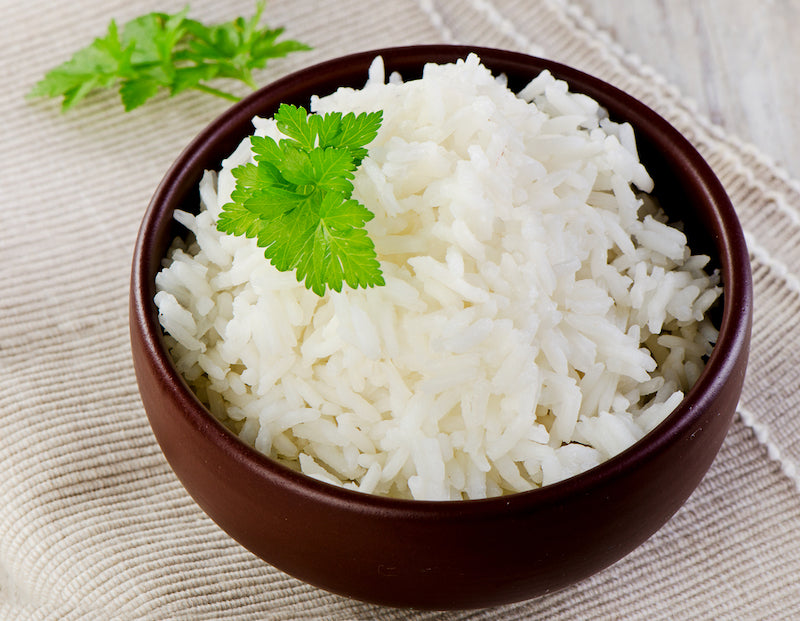Carbs are often villainized, but they are an essential nutrient that provides us with energy throughout the day. You may have heard different terms for carbs, such as simple, refined, or fast-digesting, but what do these mean, and are they bad for us?
All of these terms are typically used for the same category of carbohydrates, ones that our body uses quickly. Although these are not carbs we want to be consuming in large amounts often, they can provide many benefits if used correctly.
What are Fast Digesting Carbs?
Fast-digesting carbs sometimes referred to as “simple” or “refined” carbs are specific carbohydrate foods that are absorbed into the bloodstream rapidly.
They may have had processing to remove fiber or other nutrients that may slow down digestion or they may contain added simple sugars, such as table sugar. Some carbs may be naturally fast digesting, such as fruits.
Fast-digesting carbs are known for providing the body with a boost of energy. Along with this energy comes a hefty dose of insulin to help bring down your blood sugars to a healthy level.
This is why it isn’t recommended to consume large amounts of these foods as it can increase your risk for developing conditions such as type 2 diabetes and heart disease
However, these carbs are still not all bad. They are commonly used by athletes and exercise enthusiasts right before or after a workout to boost performance and recovery.

Examples of Fast Digesting Carbs
Fast-digesting carbs can be categorized by their glycemic index, a system that ranks how quickly certain carb foods raise your blood sugar levels. High glycemic index foods raise your blood sugar quickly while low glycemic index foods take their time for a more controlled rise.
To rate food as high on the glycemic index, it is compared with the digestion rate of pure glucose. A food that scores 55 or less is considered low glycemic while a food that scores 55-69 is moderate and anything scoring over 70 is considered high.
Some common examples of high-glycemic index (a.k.a fast-digesting carbs) are white bread, potatoes, white rice, soda, candy, and pastries. Fruits usually fall within the moderate category of the index but some, such as watermelon are considered high.
Just because a food scores high on the glycemic index does not mean this food is unhealthy. The amount of these foods you have in one sitting, also known as glycemic load, and the other foods you might have on your plate play a role in the digestion and rise of insulin during that meal.
The Glycemic index is simply a tool to help better understand which foods may result in a sharper blood sugar spike.
Should I Avoid Fast Digesting Carbs?

Fast-digesting carbs do not need to be avoided but some should be carefully moderated. Foods such as white rice, white bread, soda, candy, and sugary pastries should be consumed in moderation. These foods have a high glycemic index because they contain a large amount of sugar and little to no fiber to slow down their absorption into the bloodstream.
Other fast-digesting carbs, such as fruits and some starchy vegetables contain valuable vitamins and minerals and should not be eliminated from the diet. If you have a history of hyperglycemia or diabetes, you may have to be more mindful of these types of carbohydrates to keep your blood sugars in a good range.
Can Fast Digesting Carbs Be Beneficial?
Fast-digesting carbs can be beneficial, especially for exercise performance and recovery. For many, having a snack or small meal before exercise can boost energy for a better workout. This is especially true for endurance athletes or cardio enthusiasts.
Having a snack or small meal that contains a combination of protein and quick-digesting carbohydrates provides fuel for your muscles.
What are Slow Digesting Carbs?
Carbs that contain a good source of fiber are slow digesting. They are also on the low-glycemic index list. These include whole grains, oats, beans, and some fruits and vegetables.
Fiber is a type of carb however, the body is unable to digest it. Instead, the fiber goes through our system and is eventually removed through our waste. Because of this, it doesn’t cause a blood sugar spike as other carbs do. This is why high-fiber foods take longer to digest [1].
Fast or Slow: Which is Better for Weight Management?

Slow-digesting carbs are better for weight management because of their fiber content. A diet rich in dietary fiber is associated with improved blood sugar control, improved heart and digestive health, and weight management.
Fiber helps you to feel fuller and more satisfied following a meal. It also keeps you feeling full for longer. Those with a high-fiber diet are less likely to overeat and therefore can better maintain a healthy weight.
Although slow-digesting fibers are better for weight management, fast-digesting carbs don’t need to be cut out completely. These foods simply need to be consumed in moderation [1].
Bottom Line
Some carbs are digested quickly for immediate energy, while others take longer. Although most fast-digesting carbs consist of simple sugars or have been processed to remove their fiber, not all fast-digesting carbs are bad. In fact, they could be beneficial for exercise performance and recovery.
If you are looking to maintain a healthy weight, slow-digesting carbs that contain a good source of fiber are recommended for the majority of your carb intake but fast-digesting carbs can still be enjoyed in moderation.






